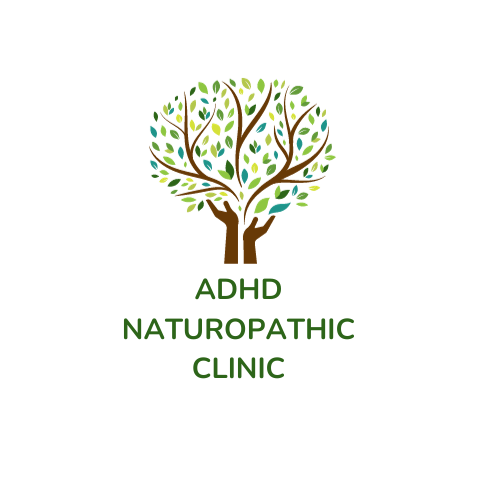In today's wellness-driven society, many people turn to supplements to enhance their health. While supplements can provide essential nutrients, self-supplementing without professional guidance poses significant risks. Understanding these risks is crucial to safeguard your health.
Potential Risks of Self-Supplementing
- Adverse Reactions: Supplements can cause harmful side effects, especially if taken inappropriately or in high doses. For example, excessive vitamin D can lead to toxicity, while too much iron can cause organ damage.
- Interactions with Medications: Supplements can interact with prescription medications, reducing their effectiveness or causing dangerous side effects. St. John's Wort, commonly used for depression, can interfere with birth control pills and other medications.
- Allergic Reactions: Some supplements, especially herbal ones, can trigger severe allergic reactions. A recent tragic case involved a young father who died from an allergic reaction to an Andrographis-containing supplement. Read article here
- Overconsumption: Taking multiple supplements simultaneously increases the risk of consuming excessive amounts of certain nutrients, leading to toxicity.
- Quality and Purity Issues: Not all supplements are created equal. Some may contain contaminants or not provide the nutrients listed on the label.
Conditions Aggravated by Over-the-Counter Supplements
Certain health conditions can be exacerbated by common over-the-counter supplements. Understanding these interactions is crucial for safe supplementation.
- Kidney Disease: High doses of vitamin C can increase the risk of kidney stones. Additionally, excess calcium from multivitamins can accumulate in the kidneys, worsening the condition.
- Gastrointestinal Issues: Antacids containing aluminum or magnesium can interfere with the absorption of essential nutrients like iron and calcium, leading to deficiencies over time.
- Thyroid Disorders: Excessive iodine in multivitamins can disrupt thyroid function, particularly in individuals with thyroid disorders.
- Heart Disease: High doses of certain vitamins, like vitamin E, can increase the risk of hemorrhagic stroke in individuals with cardiovascular issues.
- Liver Disease: Excessive intake of fat-soluble vitamins (A, D, E, and K) can lead to toxicity, putting additional strain on the liver.
How Supplements Can Deplete Nutrients
- Antacids: Long-term use can deplete magnesium, leading to muscle cramps and irregular heartbeats.
- Vitamin C: In large doses, it can increase the excretion of copper, a vital trace mineral.
- Multivitamins: High doses of certain vitamins (like B6) can lead to imbalances, causing depletion of other nutrients.
The Importance of Professional Guidance
To navigate these complexities, consulting with a health professional is essential. At our clinic we can tailor supplement recommendations to your unique health profile, considering any underlying conditions and genetic factors. We will:
- Assess Your Needs: A thorough evaluation of your health status and dietary intake helps determine if you need supplements and in what amounts.
- Identify Interactions: check for potential interactions with your current medications or health conditions.
- Ensure Quality: Recommendations for reputable brands ensuring you receive high-quality and safe products.
- Personalized Advice: Genetic factors can influence how your body metabolizes certain nutrients. Genetic testing can provide insights into which supplements are most beneficial for you.
Genetics and Supplementation: A Case of Vitamin A Toxicity
Our genetic makeup plays a crucial role in how our bodies handle and benefit from different supplements. Genetic variations, like those seen in the MTHFR gene, can impact how effectively we metabolize specific vitamins and nutrients. For example, individuals with MTHFR mutations may face challenges in converting folic acid into its active form, potentially causing health concerns when relying on standard folic acid supplements. Folic acid, a synthetic form of folate, is commonly included in many supplements.
Another significant health issue linked to genetics and supplementation is vitamin A toxicity. Certain genetic mutations can impair the body's ability to metabolize vitamin A efficiently. For example, variations in the BCMO1 gene can affect the conversion of beta-carotene (a precursor of vitamin A) into its active form. This can lead to an accumulation of vitamin A, especially if high-dose supplements are consumed. Excessive vitamin A can cause liver damage, bone abnormalities, and increased intracranial pressure. Symptoms of toxicity include dizziness, nausea, headaches, and even more severe outcomes like liver failure.
Additionally, genetic variations can affect the absorption, utilization, and elimination of nutrients, making some supplements potentially harmful. Another example, individuals with hemochromatosis, a genetic disorder affecting iron metabolism, should avoid iron supplements to prevent toxic accumulation.
Understanding your genetic predispositions can help avoid such adverse effects by guiding appropriate supplement choices and dosages.
Why It’s Worth the Investment
While it might seem more economical to purchase supplements on your own, the potential health risks and complications can lead to costly medical treatments. Investing in a consultation with our clinic is a wise choice for your long-term well-being.
Book a Consultation
To ensure you are taking the right supplements in the correct doses, we offer a 30-minute consultation. Our experts can help you navigate the complexities of supplementation, considering your unique health profile and if you are interested can also check for genetic predispositions.
Book your consultation today and take the first step towards safer, more effective supplement use. Investing in this personalized approach ensures you receive the nutrients you need without the risks associated with inappropriate supplementation.
For more information or to schedule your consultation, please contact us at clinic@adhdnatclinic.com.au

